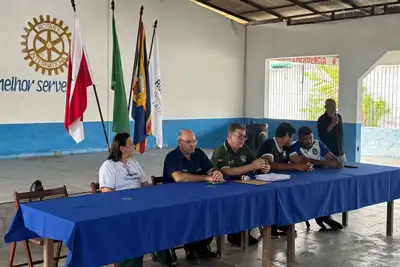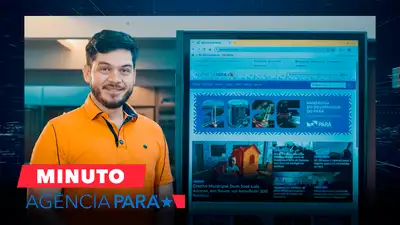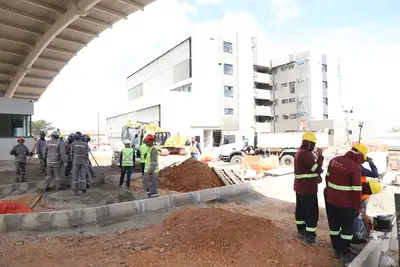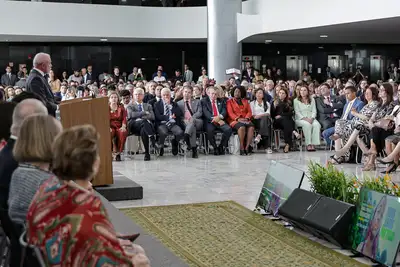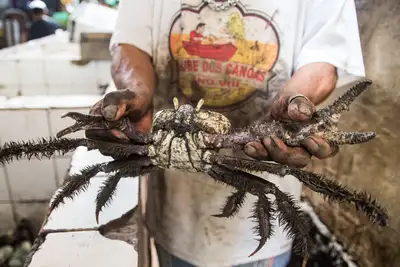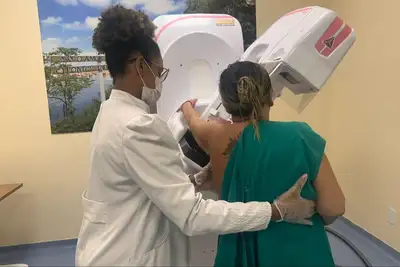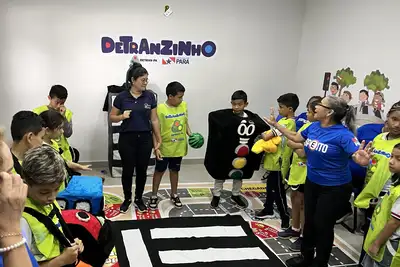Children's Oncology Hospital advances in the construction of bone marrow transplant service
Unit in the North region integrates national project for qualification of care at all stages, from identification of hematological disease to post-transplant follow-up
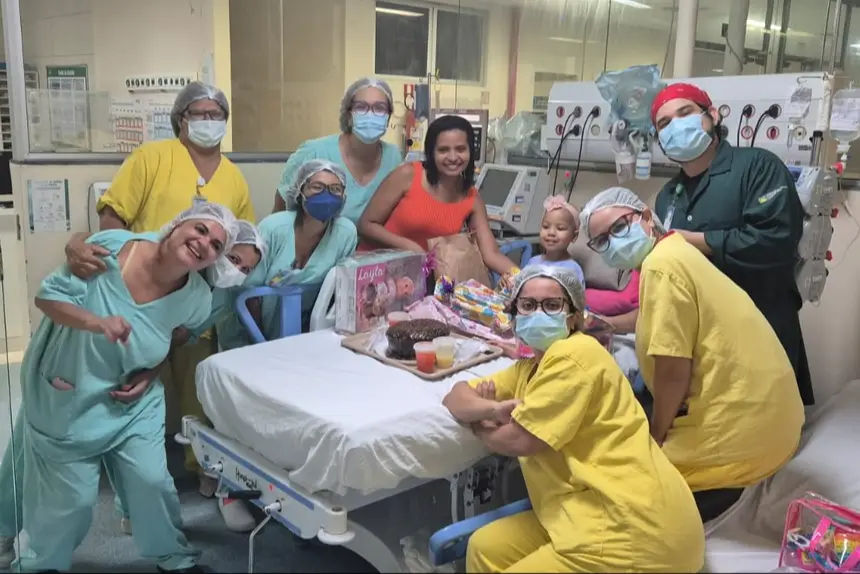
In Belém, the Octávio Lobo Children's Oncology Hospital (Hoiol) has joined an initiative that promises to change the bone marrow transplant landscape in Pará. The invitation to integrate the project "Qualification of the SUS BMT Program - From Identification of Hematological Disease to Post-Transplant Follow-Up" came after a thorough mapping by the Ministry of Health (MS). Through the Unified Health System Development Program (Proadi-SUS), strategic centers with a high volume of hematological care, mainly leukemias, and potential for expansion for this type of transplant were identified.
The pediatric oncology unit in the North region was chosen as a partner in the project, coordinated by Beneficência Portuguesa in São Paulo. For oncologist and technical director Alayde Vieira, "the recognition consolidates our position as a High Complexity Unit within the state public network and represents a historic opportunity to advance towards self-sufficiency in pediatric BMT."
Children and adolescents diagnosed with acute leukemias - the main indication for BMT in pediatrics - face the challenge of long travels to distant regions. This implies family separation, high social costs, and additional clinical risks. With the technical and strategic support of the project, the "Children's Oncology" is preparing to reduce these barriers. "We are creating the conditions so that, in the near future, our patients can undergo the transplant in our State, without needing to be away from their support network," emphasizes Alayde.
Among the factors that weighed in the choice of Hoiol is the significant volume of children in active treatment, which already exceeds 900 patients. In addition, there is a hospital structure in full consolidation, with its own Pediatric Intensive Care Unit (ICU), specialized multidisciplinary team, and recognition as a reference unit in high complexity within the SUS.
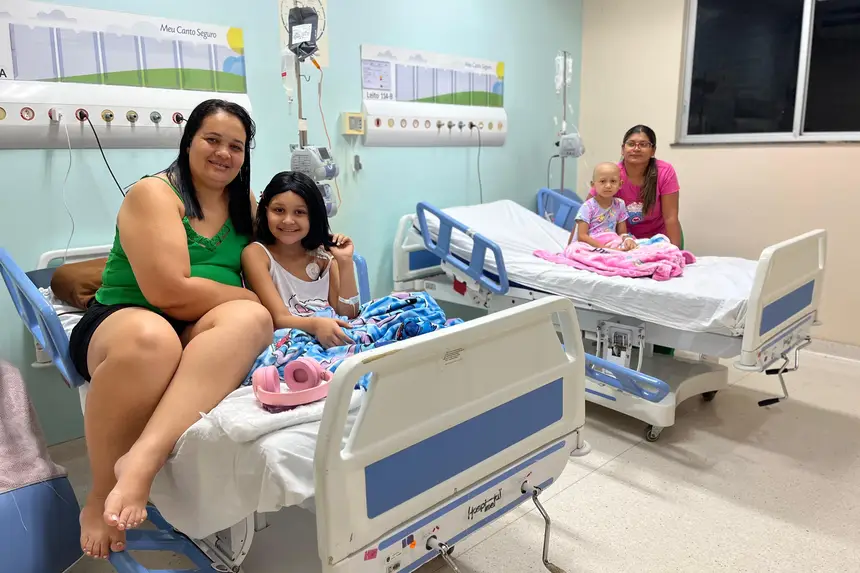
The national project, in turn, operates on multiple fronts, from the early identification of eligible patients to the organization of follow-up after the transplant. The schedule includes training for the multiprofessional team, building more efficient care flows, teleconsultation meetings with specialists, and distance education courses.
"This exchange with Beneficência Portuguesa has been fundamental. We have already undergone diagnostic evaluation, started building a robust action plan, and are receiving direct support to organize our care routine," explained the technical director.
Positive impact on routine
In February of this year, consultants from Beneficência Portuguesa conducted a situational analysis with the hospital unit's team. Currently, the second phase of the project is being executed, focusing on making professionals more capable in BMT programming, with the development of action plans, definition of responsibilities, and deadlines. Subsequently, the implementation phase will be put into practice. The development timeline is two years.
In practice, the qualification has been transforming the daily lives of doctors, nurses, pharmacists, social workers, psychologists, and nutritionists. Biweekly meetings and monthly teleconsultations help the team discuss cases in a more integrated manner, standardize practices, and adopt clearer protocols for monitoring patients, from diagnosis to post-transplant.
For families, the first impacts are perceived in the agility of defining BMT indications, better clinical preparation, and greater psychosocial support. In the medium and long term, the goal is ambitious: to reduce mortality and increase the rate of successfully performed transplants.
Resident of the municipality of São Félix do Xingu, Aline Silva is the mother of Ana Júlia Campelo, 3 years old, who was indicated for the procedure after a relapse of leukemia in January of this year. The child received the bone marrow infusion at the beginning of June at the hospital of the Support Group for Adolescents and Children with Cancer (GRAACC) in São Paulo.
"Ana has always been well cared for by all the professionals, treated with great affection. However, it would be very good if the transplant could be performed in our State with everything necessary, because many families cannot afford to travel to other Brazilian cities and need benefits like Treatment Outside the Home (TFD). The expenses are many, so the creation of a dedicated service at Hoiol would help a lot," said Aline Silva.
Towards our own BMT service
The realization of a dedicated pediatric BMT program is a strategic plan of Hoiol in the medium term. Each year, about 20 children receive the indication for the procedure, a number that justifies the creation of a dedicated program in the region.
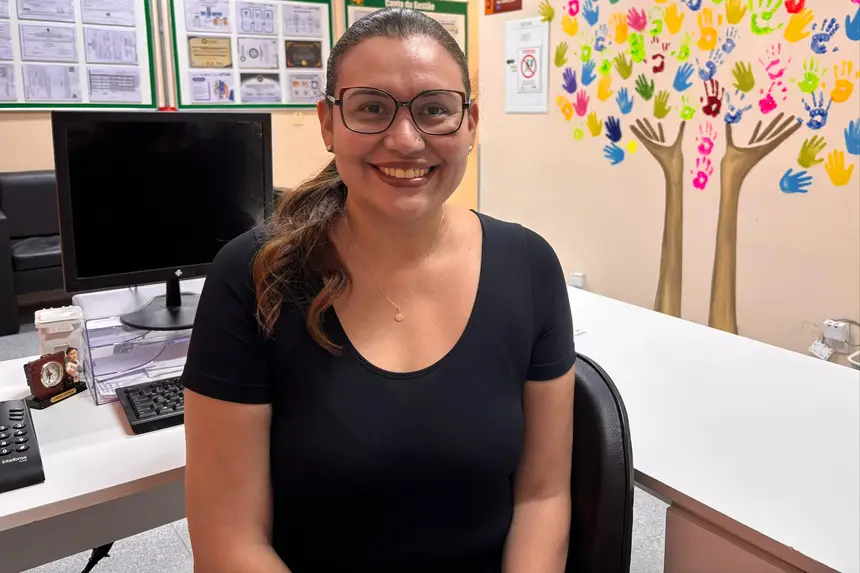
"This project is a concrete demonstration of how well-articulated and structured public policies can promote regional equity and transform the reality of children and adolescents with cancer. The partnership with Proadi-SUS is an institutional milestone that will leave a lasting legacy," emphasizes pediatric oncologist Alayde Vieira.
The general director, Sara Castro, highlights that while the service is not yet implemented, the hospital involves all sectors in building a more agile care network with a high capacity for response. "This qualification positions us as a strategic center in our region, capable of providing resolutive and coordinated assistance to patients with complex hematological diseases. It also strengthens our articulation with the state and national pediatric oncology network. For many Amazonian families, this means having hope for a cure without having to give up the comfort of home," concludes the manager.


